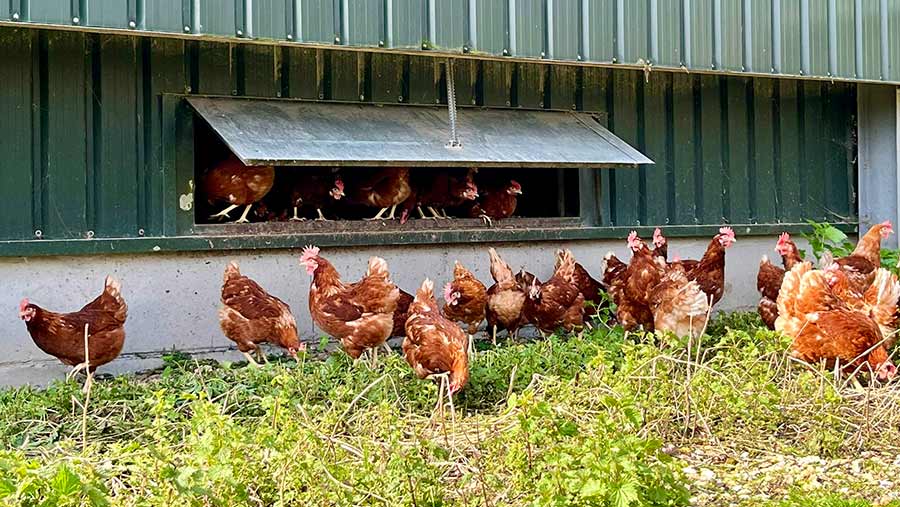Free-range birds take first steps outside in five months
 Free-range birds venture out today at The Mac’s Farm in East Sussex © The Mac's Farm
Free-range birds venture out today at The Mac’s Farm in East Sussex © The Mac's Farm Poultry in England and Wales can range outside again today (18 April) as the mandatory avian influenza housing restrictions are lifted. But, with the virus still circulating, anxiety levels among free-range producers are said to be high.
The official infection risk is now classed as “medium” and the threat considered to be sufficiently low to allow birds to range outside again.
See also: What to consider before extending layer life beyond 72 weeks
It means that poultry and eggs produced in these systems can again be marketed as free-range.
NFU Poultry chairman James Mottershead said it had come as a “huge relief”, but added: “Some farmers are feeling anxious about having their flocks return outdoors as infection may still be in circulation.”
This is because of the ongoing risk from wild birds, which is likely to persist in the UK for several weeks or possibly months.
Protection
Stringent biosecurity measures would play an important role in protecting flocks going forward, Mr Mottershead added.
That is also the message coming from the chief veterinary officers of England and Wales.
In Wales, Richard Irvine said biosecurity offered the best protection for kept birds.
“Whether keepers have a few birds or a thousand, it is vital the very highest standards of biosecurity are maintained,” he advised.
“Vigilance is also key, and it’s important any signs or suspicion of avian influenza is reported immediately.”
How to keep wild birds away
Defra has issued guidance on keeping wild birds off ranges:
- Regularly walk the area
- Use predator decoys
- Use visual bird scarers or other novel bird scaring devices
One area of concern some in the industry are facing is how poultry will adjust after five months of housing.
RSPCA poultry expert Kate Norman said they may initially express signs of fear and stress when the popholes are opened, resulting in issues such as feather pecking or the birds choosing to remain indoors.
She issued the following advice on how to encourage a smooth transition:
- Introduce shelters and structures, such as trailers covered in tree brashings, around popholes to create a “corridor” to the outside, and natural cover and enrichment close to the popholes
- Provide dustbathing areas
- Create windbreaks for exposed areas
- Ensure wet areas of land or standing water are fenced off
- Provide a good surface outside the popholes to prevent poaching and maintain clean, dry litter inside
- Practice excellent litter management and enrichment in the housing.
Protection zones, and therefore housing orders, remain in place in some parts of England and Wales where there have been recent outbreaks, including at Southwaite in Cumbria and Newtown in Powys.
